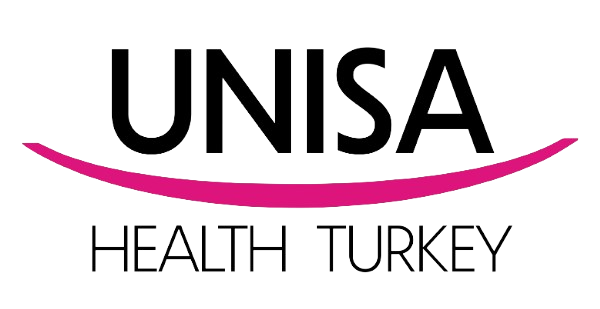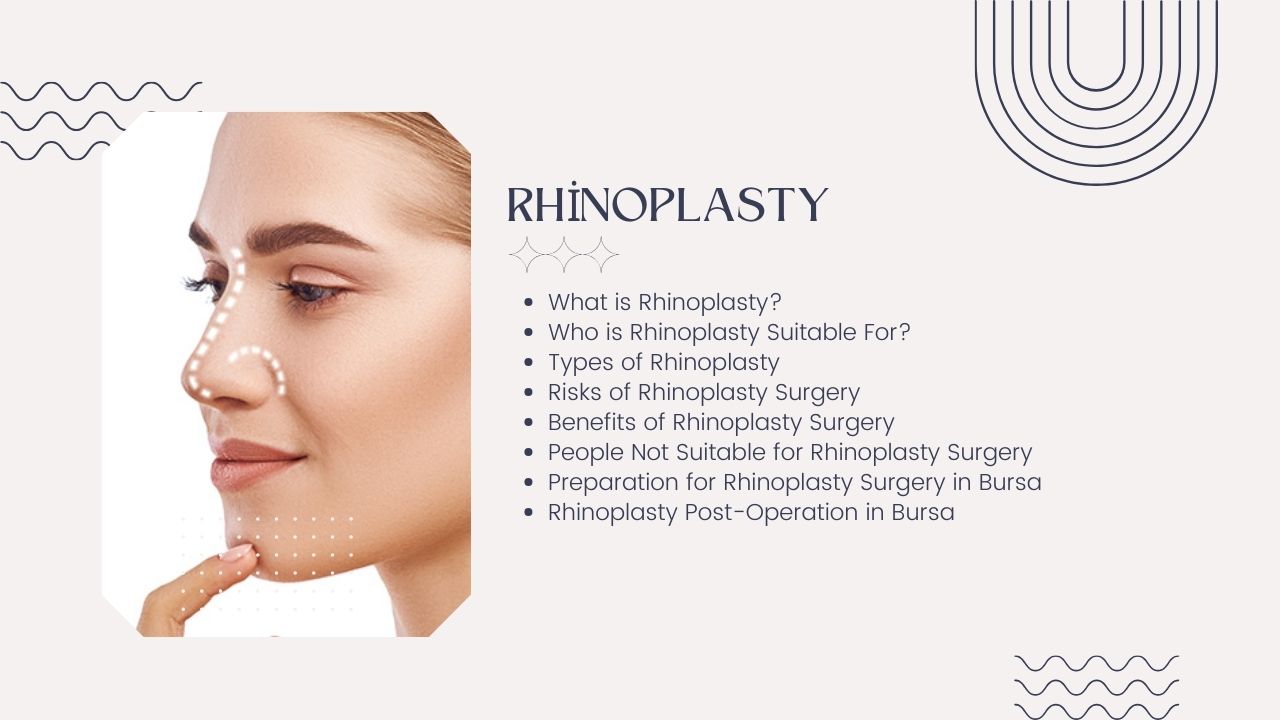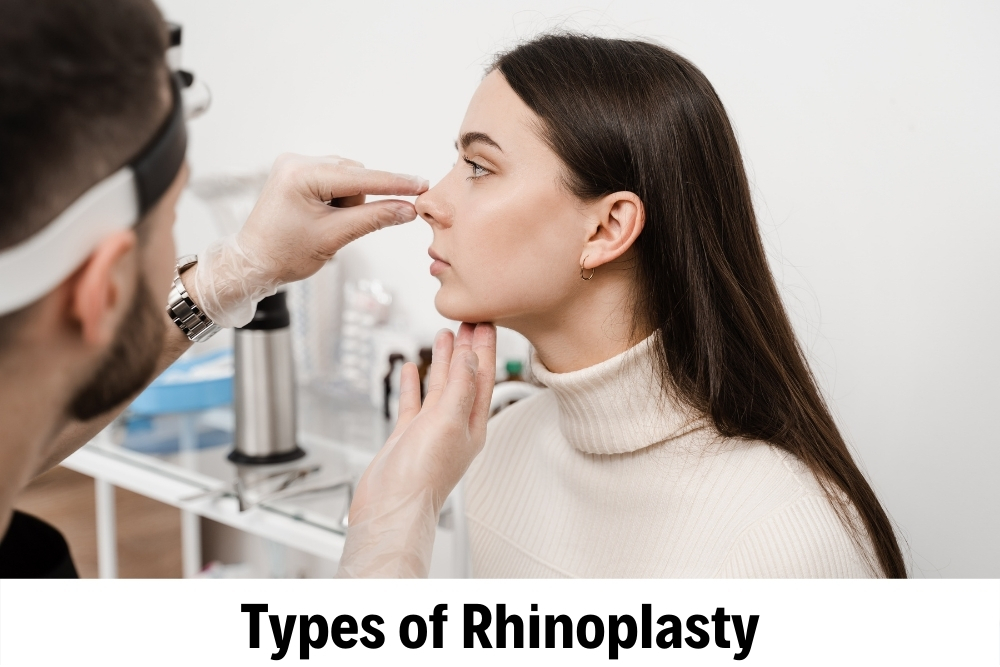Hello,
How Can We Help You?
Contact Form
Fill in the form and we will contact you as quickly as possible.
Contact us on Whatsapp
Scan with your camera app or click the QR code to start a conversation.


An ideal nose is important for balanced facial features and a beautiful profile. However, the shape of the nose may have an undesirable appearance due to problems such as congenital asymmetry or trauma resulting from accidents. Rhinoplasty is a surgical procedure performed to change the shape of the nose and make it harmonious with facial features. At Unisa Health, we perform rhinoplasty surgery safely and comfortably with our experienced surgeons and modern facilities.
Rhinoplasty is a surgical procedure aimed at correcting nasal aesthetics by reshaping the nasal bone, cartilage, and skin. This procedure includes various aesthetic corrections such as reducing or enlarging the nasal tip, reducing or enlarging the nostrils, rasping or straightening the nasal bone, removing humps on the nose, and adjusting the angle between the nose and the lip.

Rhinoplasty can be performed in various situations and is generally preferred for aesthetic or functional corrections. Due to aesthetic concerns, rhinoplasty may be considered if the shape of the nose is not harmonious with facial features or if the nose appears humped, large, small, deviated, or asymmetrical. Additionally, in individuals experiencing breathing problems, problems such as nasal bone curvature or nasal septal hypertrophy can cause difficulty in breathing, and rhinoplasty can provide both aesthetic and functional correction. Congenital nasal deformities or traumas resulting from accidents may also indicate rhinoplasty; in these cases, correcting the shape and function of the nose can improve the individual's quality of life. Considering these different situations, the purpose and circumstances of rhinoplasty surgery are determined and planned according to the individual needs of the patient.
Rhinoplasty can be performed in two main types:
In this method, incisions are made inside the nostrils or under the nasal bridge. This prevents visible scarring on the skin.
In this method, an incision is made under the nasal bridge and between the nostrils. This method is preferred for more complex procedures.

Rhinoplasty surgery has many benefits. Some of these include:
With rhinoplasty, the nose can achieve a more beautiful appearance that harmonizes with facial features.
If problems such as nasal bone curvature or nasal septal hypertrophy cause breathing difficulties, rhinoplasty can resolve these issues.
After rhinoplasty, patients may feel more beautiful and attractive, thus increasing their self-confidence.
After rhinoplasty, patients may breathe more comfortably and sleep better.
Rhinoplasty surgery, like many surgical procedures, may have some risks associated with it. Some of these risks include: First, problems such as allergic reactions or respiratory problems may arise due to anesthesia complications. There may be a risk of bleeding after surgery, and infection may develop at the surgical site. Additionally, with the use of the open rhinoplasty method, a small scar may remain on the nasal bridge. Temporary or permanent numbness may occur in the nose after surgery, and asymmetry may be observed in the nose. Rarely, breathing problems may arise after rhinoplasty. These risks may vary for each patient and should be carefully evaluated before surgery. It is important to discuss these risks with your doctor before undergoing surgery to understand the possible complications of the procedure.
Rhinoplasty Surgery Not Suitable for Certain Individuals
Rhinoplasty surgery should not be performed on individuals who do not meet certain conditions. First of all, rhinoplasty surgery is not performed on pregnant or breastfeeding women because the risks of surgical intervention may increase during this period and may harm the mother or baby. Additionally, individuals with chronic health problems such as severe diabetes or heart disease may have a higher risk of complications during surgery, so such patients are generally not suitable candidates for rhinoplasty. The use of blood thinners can increase the risk of bleeding during surgery, and the use of these medications may be stopped before surgery. Individuals with serious health problems such as malignant nasal tumors should first have their tumors treated. Additionally, it is important for the patient to be psychologically and socially capable of tolerating these changes in lifestyle after rhinoplasty surgery. Rhinoplasty surgery is not recommended for individuals who do not have realistic expectations regarding the shape of the nose after surgery, as achieving a perfect nose may not always be possible. For these reasons, the general health status and expectations of patients should be thoroughly evaluated before rhinoplasty surgery, and the suitability of the surgery should be determined.
It is important for patients to make certain preparations before rhinoplasty surgery. First of all, smoking can increase the risk of complications after surgery, so it is necessary to quit smoking at least 4 weeks before surgery. Additionally, blood thinners such as aspirin can increase the risk of bleeding during surgery, and discontinuation of these medications should be done according to your doctor's instructions. Since there may be a deficiency of certain vitamins and minerals after surgery, it is important to take the supplements recommended by your doctor. It is also necessary not to wear makeup on the day of the surgery and to wear comfortable clothes that allow easy movement after surgery. Finally, it is important to have your ID, health insurance, and other necessary documents with you when going for surgery. These preparations are important for the successful completion of the surgery and for the smooth recovery process.
After surgery, your doctor will provide you with pain relievers and necessary instructions. Generally, you may need to stay in the hospital for a few days after surgery. After returning home, it is important to rest for a few weeks and follow your doctor's instructions.
Contact Form
Fill in the form and we will contact you as quickly as possible.
Contact us on Whatsapp
Scan with your camera app or click the QR code to start a conversation.